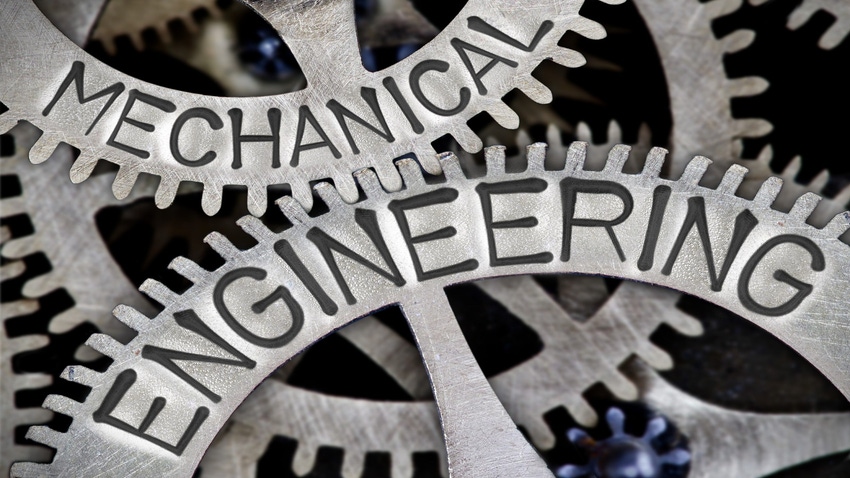Mechanical Engineers Face a Changing Future
The soft skills of problem-solving and communication will be needed, while AI, additive manufacturing, and robot/human interaction will grow in importance.
April 19, 2024

At a Glance
- Engineers will have to become better communicators.
- Certifications will grow in importance.
- Managing data will become paramount.
In order to get a grasp on the skills needed in the coming decade, the American Society of Mechanical Engineers (ASME) and Autodesk conducted a study to identify the skills that mechanical engineers, manufacturing engineers, and CNC machinists will need to do their work.
The report included a literature review, in-depth phone interviews with 30 thought leaders, and a survey of 324 respondents from the US, Canada, and UK. Respondents were chosen from industry based on their involvement in manufacturing physical, discrete, or mechanical products and from academia based on their instruction of mechanical or manufacturing engineering or CNC machining.
The report points to these essential changes for mechanical engineers, manufacturing engineers, and CNC machinists:
Mechanical Engineers
“I think that machine learning and AI will also greatly change the mechanical engineer,” said Timothy Robertson COO of the Institute for Advanced Learning and Research. “I think they will need to have more in-depth understanding of the manufacturing processes because the amount of data that’s going to be available is going to be insane, so they’re going to need to put that into the design process.”
Mechanical engineers will continue to improve upon engineering designs and become more involved in manufacturing implementations and processing production data results to improve designs for manufacturability.
60% of industry believe interdisciplinary engineering knowledge will increase for mechanical engineers over the next five to 10 years. This was consistent across small, medium, and large manufacturers.
Continued emphasis on “soft” skills like problem solving and communication skills to complement their growing focus in software tool functionality, data analytics, programming, and “smart” and sustainable design techniques.
Manufacturing Engineers
“The barriers between engineering and manufacturing are coming down,” said Jeffrey Reed director of engineering at Northrop Grumman Corporation. “I think 10 years from now you are going to see manufacturing engineers and mechanical engineers with equivalent degrees coming out of college.”
The manufacturing engineer position will become even more interdisciplinary as it blends skills with both mechanical engineers and CNC machinists.
Within industry, 72% of respondents believe human-robotic interaction will increase and 74% believe automation will increase for this role.
Like mechanical engineers, future manufacturing engineers will still need enhanced communication skills and will be expected to incorporate additive manufacturing and utilize artificial intelligence /machine learning (AI/ML), digital twin, and data analytics to improve throughput and efficiencies.
CNC Machinists
“CNC machines are going to print all kinds of different materials. There’s going to be an explosion in the different types of materials everybody’s using,” said Pierre Larochelle, professor at South Dakota School of Mines and Technology. “They’re going to have to know how to work with all kinds of funky steel, aluminum, titanium, and lithium.”
CNC machinists' roles will evolve dramatically, from a CNC operator to an engineering technician who programs CNC machines, and over time, they will take on other manufacturing engineering functions.
The factory environments in which future CNC machinists will work will become more complex through the use of cobotics, 3D printers, AI/ML and multi-axis machines, and will require greater mental dexterity (such as programming) and productive collaboration with engineering teams.
According to industry professionals, becoming increasingly fluent in computer-aided design and manufacturing (CAD/CAM) software and programming will enable machinists to increase their use of technologies, including five-axis machines (65%), additive/hybrid manufacturing (66%), and robotics/cobotics interaction (65%).
Across all three roles, 90% of survey respondents indicated that teaching deeper design-for-manufacturing knowledge was the most impactful way for academia to develop the future manufacturing workforce.
Additional Findings from the Survey
Communication is paramount. – The research suggests an increased focus on exchanging data between groups of people through cloud collaboration. Digital transformation of roles will shape communication across roles as workflows change. o 86% of total respondents strongly or somewhat agreed that there is a need for a collaborative design process between all three disciplines.
Certifications show specialization. – Academia expects to promote supplementing degrees with certifications. Degrees will likely serve as the foundation, while certifications will showcase specialized skills. 86% of academics embrace less reliance on degrees and welcome more specialized certifications developed in partnership with industry. o 84% of all survey respondents believe employers and academia should partner on new types of certification programs based on employer needs. • Academia embraces emerging tech.
Mechanical engineers need to have applied knowledge throughout the manufacturing process. For mechanical engineers over the next five to 10 years, 79% of industry believe electrical and software engineering will increase and 77% believe system engineering skills will increase.
About the Author(s)
You May Also Like





